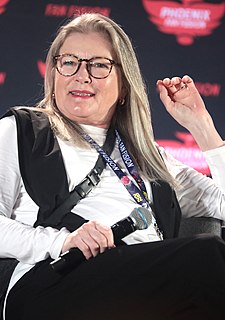A Quote by Dana Brunetti
The future of the television industry is changing at an unstoppable rate, and it is exciting to share my experience and thoughts on how this will change the value of content in the digital space.
Related Quotes
It's the digital era. What makes it exciting is that it's both the Golden Age of television and the Wild West of television. Something is happening now that's unprecedented, and we know that we're a part of it. What could be more exciting or better than that? You can't lose because you're on the pony and you're staking the claim.
I think that Apple has revolutionized every other consumer industry; why not television? The complexity of the experience of using the television gets more and more complicated. So it seems exactly the sort of problem that if anyone is going to change the experience of what the first principles are, it is going to be Apple.
I want to use film to tell stories that need to be told to spark discussions that will lead to change. I really want to see a change in the mindset of youth, how they see themselves and how they value life. Young audiences will be able to see themselves in this film and older audiences will gain an understanding of what their kids are dealing with on a daily basis. Kids discuss what they see on TV, social media, film so I want to create content that they will discuss and will change the way they think.
Business education must constantly be changing and being updated to improve the quality of the student experience. On line courses will be a key part of supplementing course offerings and providing opportunities for life-long learning. Like any industry, business schools must continue to think and re-think how they add value to students and create thought leadership.
When people in my generation started to write, we did not actually have much of a movie industry, much of a theater scene, much of a television industry or other creative outlets. But we had a lot of aspiring writers. All that has changed. We now have a movie industry, television industry and lots of theater. But we have retained a large contingent of writers and a dedicated readership. The larger number of people in society who value writing, the larger number of good writers will be produced. That's my belief. It raises the bar.




































